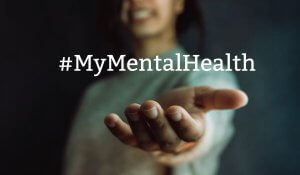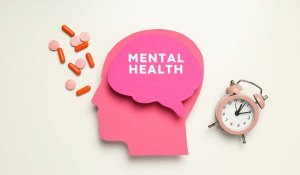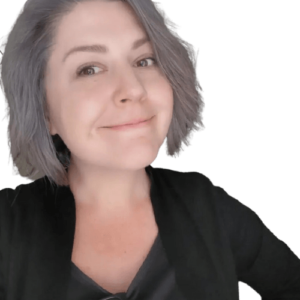 This May, in honor of Mental Health Awareness Month, it’s time to take action, raise awareness, and change how we talk about mental health. Since 1949, this month has been dedicated to addressing the challenges faced by millions living with mental health conditions while working to break the stigma surrounding them. The theme, “In Every Story, There’s Strength,” reminds us of the resilience and power within every mental health journey. In this article, I’ll share what I wish more people understood about mental health after dealing with issues myself through my lifetime, as well as being there for those who have had their own struggles.
This May, in honor of Mental Health Awareness Month, it’s time to take action, raise awareness, and change how we talk about mental health. Since 1949, this month has been dedicated to addressing the challenges faced by millions living with mental health conditions while working to break the stigma surrounding them. The theme, “In Every Story, There’s Strength,” reminds us of the resilience and power within every mental health journey. In this article, I’ll share what I wish more people understood about mental health after dealing with issues myself through my lifetime, as well as being there for those who have had their own struggles.
By opening up and sharing experiences, the hope is to inspire others to do the same. This creates a community built on bravery, healing, and connection. People can share stories about their mental health conditions by sending a video, message, quote, or by using #MyMentalHealth on social media.
What I wish people knew about mental health
It can feel like it defines you, but we don’t want you to define us by it
When someone gets a diagnosis of their mental health conditions, there might be relief in finally knowing what’s going on. But at the same time, it can feel overwhelming, like wearing a label that says, “I’m depressed, anxious, and bipolar.” It’s easy to feel like mental illness controls what we can or can’t do. For many, it becomes a big part of how they see themselves and their identity.
But we don’t want other people defining us by our mental illness or writing us off because of it. While recognizing that we may not function the way we are expected to is appreciated, it’s best to keep the focus on who we are and what we enjoy to help separate identity from illness.
There is still a lot of stigma around mental illness
While the world has come a long way, there is still shame and stigma surrounding mental health conditions. This isn’t just about how people see themselves but also how others view them.
In some cultures, mental illness is especially looked down on, or its existence is denied.
Even though mental health is talked about more openly in society today, like with campaigns such as R U OK?, some people still feel unsure about speaking up on a personal level, as many are still afraid of being judged or feeling ashamed when showing their weaknesses or being vulnerable. This makes it hard for some to talk freely about their struggles.
It can be isolating and lonely even with a strong support network
I have a loving and supportive family and fantastic friends. Still, the depressive phases of my illness leave me with little energy to connect with others, so even when people are nearby and eager to help, I often feel alone. When people with mental illness do reach out for help, what works for support for some might not work for others. Simply reaching out with “Are you okay?” is always appreciated by me, but others might prefer “I’m here if you need me”, a statement without a question that they feel the need to answer. It helps when friends listen without judging, trying to understand, and show real care. It can be frustrating when others give advice or solutions without taking the time to listen first. While it may be understood that people are just trying to help and might not know what else to say, sometimes, we just need someone to listen.
Mental illness can have physical consequences
Some days, getting out of bed and showering is an impossible task, let alone going to work or running a household. Mental health can significantly affect physical health by causing fatigue, body aches, and other physical symptoms. This can sometimes make it harder for us to do things that others deem simple. Our minds and bodies are constantly fighting against each other, and some days, our illnesses win. Add in responsibilities like family, work, or keeping up with friends, and it can quickly become overwhelming. Please don’t assume it means we are lazy or unmotivated. People without mental health challenges often don’t have to think twice about these things, and they go through their routines on autopilot without using extra energy. But for those dealing with the exhaustion of mental illness, it’s a whole different story.
Mental illness can have multiple causes and triggers
The exact cause of mental illness is still unknown, and scientists continue to study its origins. In the past, many believed it was caused by imbalances in brain chemistry. Today, more experts are questioning this simplified explanation. The brain is a complicated organ, and it’s not as simple as just having too much or too little of certain brain chemicals. Instead, mental health conditions like depression can have many causes. These might include problems with how the brain controls mood, genetics, stressful life events, childhood trauma, certain medications, or other health issues.
Medication can take time to work

People need someone to listen, not someone to judge.
Saying things like, “But you have such a great family,” or “Your job is awesome, what is there to complain about?” doesn’t help. Comments like, “Why are you sad when you have so much going for you?” can feel dismissive. Listing reasons why someone shouldn’t feel depressed, anxious, or overwhelmed won’t make their struggles disappear.
Instead, it’s better to listen and offer support. You might say, “That sounds really tough,” or, “I’m so sorry you’re going through this. I care, and I’ll check in with you tomorrow. Please call me if you need to talk before then.” And when you promise to check in, follow through!
Understand that mental illness works on its own schedule
When someone is dealing with mental illness, sometimes they can’t follow through on tasks on the expected schedule. Mental illness doesn’t work on anyone else’s schedule or expectations, as they don’t follow logic, and they aren’t something people choose to have. Some days I feel like I could do anything, and I might offer to cook a meal for you at my house over the weekend, but then a depressive episode hits, and I have to cancel. It isn’t because I don’t want to see you, it is because I physically can’t until it passes. This is often why many people with mental illness struggle to make plans in advance, as they are not sure if their mind will let them participate on the day.
Mental health issues may trigger substance use disorders
The likelihood of having an issue with substances like drugs and alcohol is increased when someone is suffering from mental health issues. Instead of seeing it as the individual is weak-willed, it is important to understand that the amount of energy it takes to function in a world built for those without mental health issues can often lead to feeling like they need to escape or numb the overwhelming thoughts and feelings. Mental health issues and the associated substance use disorders are medical conditions that require treatment and understanding from those around them.
Society has made progress in understanding and accepting mental health disorders, but there is still more work to do. By spreading awareness about mental health, people can help create a more accepting and supportive environment for everyone.
Frequently Asked Questions
What is the most commonly diagnosed mental disorder?
Generalized Anxiety Disorder (GAD) is a common mental health condition where people experience constant and excessive worry about everyday situations. This level of worrying is often much greater than what the situation actually calls for, making it difficult for individuals to manage their daily lives.
Is ADHD a mental illness?
Adult ADHD is a mental health condition that causes ongoing issues with focus, impulsive actions, and hyperactivity. People with this disorder may struggle to pay attention, stay still, or control their behavior over time.
What is a mental breakdown?
A nervous breakdown, also known as a mental breakdown, refers to a time of overwhelming emotional or mental stress. During this period, a person may struggle to handle everyday tasks. Although the term is commonly used, it is not a medical diagnosis or a recognized mental health condition.
Can a mental breakdown last for years?
When someone experiences a nervous breakdown, they often struggle to manage daily tasks and may need help from a mental health professional. These episodes can last anywhere from a few days to several months or even longer. Recovery can take significant time and effort due to the extended duration of the breakdown.
What are some signs you have anxiety?
Symptoms of anxiety can include difficulty focusing or making decisions, feeling on edge or easily irritated, and experiencing physical issues like nausea, sweating, or a racing heart. People may also struggle with sleep and feel a constant sense of worry or impending doom.

















